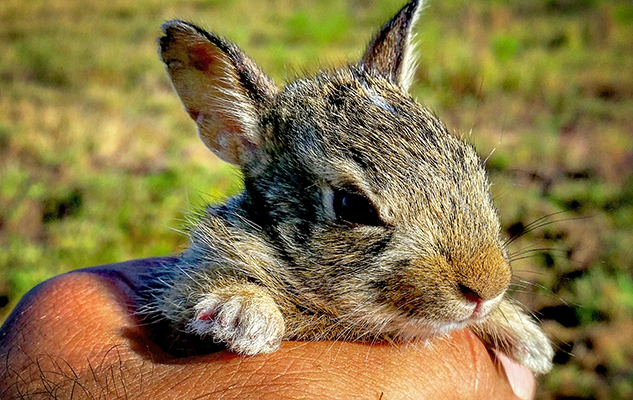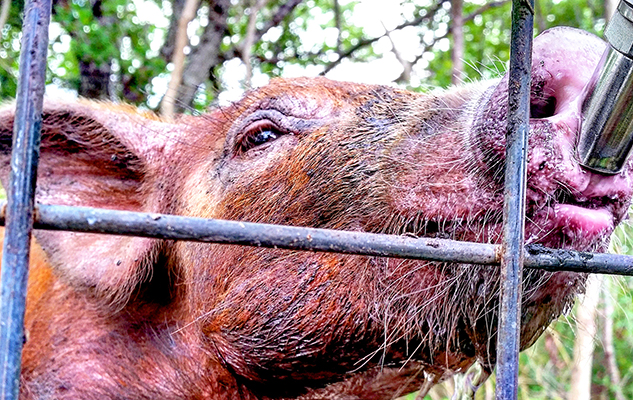By Derek Emadi, Emadi Acres
We asked each of our Bootstrap Bloggers to tell us the top five things people should know about farming. This is Derek’s list:
1) Love thy organic matter
Simply put, always accumulate organic matter. If you farm, whether it’s mulch, hay, manure, leaves, topsoil, cardboard, etc, take what’s free. People are always getting rid of wonderful organic matter. It’s a great resource that is often overlooked or disposed of. Organic matter is helpful in improving your soil, making compost, managing erosion, and much more.The possibilities are endless. Even if you don’t have an immediate use for it, your farm will be rewarded in the future. Remember that the microbes in the soil are hungry, so feed them food they love!
2) “Organic” ain’t easy
Everyday, through tremendous effort, my farm moves closer to organic status. One of my end goals is to be a diversified organic farmer who only uses rainwater to irrigate. Sounds like a crazy dream, but I’ve seen it in action at a farm down the road. The farm’s owner has never pumped any water from our aquifers in 26 years. He intensively manages the organic matter and soil on his 5-acre farm and uses moisture retaining techniques like heavy mulching. It’s really impressive and something I believe we should all strive for in the agricultural community. His farm is the best example of true sustainable, organic farming I’ve seen. At an “organic” farm I worked at previously, I was taken aback by how much water the farm was constantly running on. Even during the brutally hot summer, they ran water all day. This gave me the desire to be a water conserving farmer, even in our drought stricken area.

A huge challenge of organic farming is dealing with pests. There aren’t many ways around an infestation of bugs on your crops. At the aforementioned “organic” farm I worked at, they had me spraying pyrethrins during the day when bees were present. I recall saying, “But there are bees out. What about them?” and was told, “ Just don’t spray them.” Easier said than done. Leaf footed bugs were draping hundreds of feet of vegetables like a blanket, while bees buzzed every yellow flower. I understood that they had a business to run and vegetables to protect, but for me bees are not something I want to sacrifice. So here at my farm I do my very best to protect my bees and not use any pesticides if I can help it.
3) Failure is your best friend
I 100% believe in the old adage that “if you don’t fail, you don’t learn.” Every single time you make a mistake is a chance to grow and adapt. Generally in life, you try not to make the same mistake twice. Sometimes in the moment or days after, your mistake will bother you, but time passes and you move on to your next “mistake.” If you plan on being a lifelong learner of this farm life, keep moving forward and absorbing challenges.
 4) Death Happens
4) Death Happens
As harsh as it sounds, it’s the truth. If you deal with animals or plants, you will inevitably have to deal with death multiple times. You usually wouldn’t think a plant’s life is something that can affect you, but when you are expecting a certain outcome, like veggies to sell, and something drastic happens, your outcome is changed and you are undoubtedly disappointed. You have to reassess ways to protect your crop, replant, and push back the time it would’ve been available for use. When my crops die before their time, I experience momentary anger, and move on quickly—no time to dwell. But when it’s an animal, it can be a little more difficult, especially with your initial animals.
When we moved to our farm, we experienced our first two deaths. My original hen, Lil’ Reggie, who was a really sweet, fly-up-to-perch-on-your-knee kind of girl, was dispatched by a hawk while I was at work. The second death was a barn cat the previous owners left. Her name was Pringles, she would purr anytime we petted her, and she always wanted the warmth of a calm lap. One day I came home from work and found that she had been hit by a vehicle. That death really helped me understand that all life on the farm comes and goes. But it’s up to us humans to give those animals the best life we can while they are here. Death of any kind always feels like a mistake, but nature has a way of regenerating and healing itself and you.
5) Nature is the judge, jury, and executioner
We humans always try to impose our will on nature, but she is the great equalizer that keeps us in check. She can bring disease that wipes out a chicken flock or scorch the ground ’til it cracks, but she also provides early morning rays that help germinate the tiniest seeds and sends a mockingbird to devour a voracious tomato hornworm. Nature communicates, so listen, because there’s always something to hear.
